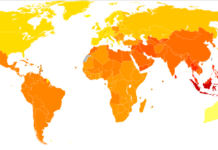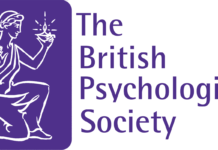Anticholinergic Medications Linked to Dementia Similar to Early Alzheimer’s
A new study, published in the Journal of Clinical Psychiatry, investigates the effects of anticholinergic medications, such as antidepressants and antipsychotics, on cognition in older adults diagnosed with schizophrenia.
International Study Examines Environmental Factors Associated with Psychosis
Study finds the incidence of “psychosis” to vary by person and place, corresponding to factors such as race, ethnicity, age, and environment.
APA: Drop the Stigmatizing Term “Schizophrenia”
I believe that the American Psychiatric Association and the World Health Organization should follow the lead of several countries that have already retired the term "schizophrenia" from their vocabularies. The time is now to drop this stigmatizing, hope-disabling, scientifically controversial term.
Reexamining Schizophrenia as a Brain Disease
Schizophrenia has occupied, and continues to occupy, a position of great import in psychiatry, and it is frequently used to assert the supposed biological nature of the field. What evidence is there to suggest that what we call schizophrenia is a disease of the brain? Surprisingly, very little.
Police Violence Victims at Increased Risk of Psychotic Symptoms
Researchers examine links between police victimization and psychotic symptoms in a topical new study.
AVATAR Therapy Shows Some Positive Outcomes, Now What?
In a commentary piece, Ben Alderson-Day and Nev Jones discuss the AVATAR therapy research for psychosis and propose further questions.
Study Challenges Assumption that Schizophrenia Impairs Cognitive Ability
Secondary factors may impair performance on cognitive tasks, making it difficult for individuals diagnosed with schizophrenia to perform to the best of their ability.
Study Privileges the Voices of Persons Hospitalized Against Their Will
How people are treated after being hospitalized can either help them to overcome the traumatic effects of coercion or make them worse.
The Orwellian New Digital Abilify Will Subjugate Vulnerable People Across the US
The FDA approved the prescribing and sale of a new hi-tech compliance-monitoring “antipsychotic” drug this week. A new chapter in human darkness has descended — one that is applauded by the alliance of control addicts that made it happen.
Outcome Reporting Bias in Antipsychotic Medication Trials
A new study in the journal Translational Psychiatry, an influential journal in biological psychiatry published by Nature, challenges the state of the research on antipsychotic drugs.
Duration of Untreated Psychosis Revisited: Response to the Goff Paper
Based on the studies cited, it seems hard to support the assertion that “early initiation of antipsychotics may improve long-term course of the illness.” This raises an urgent question about initial treatment. Doesn’t it make sense to try to capture all of those individuals who might get through a psychosis without drugs?
Treatment of Insomnia Reduces Paranoia and Hallucinations
Treating insomnia using online cognitive-behavioral therapy appears to improve a variety of mental health concerns.
Psychologists Push For New Approaches to Psychosis: Part 2
The authors of the report expand upon the traumatic and sociopolitical factors underlying presentations of psychosis and “schizophrenia.”
Schizophrenia Genetic Research – Running on Empty
The time has come to halt the massive failure that has characterized schizophrenia molecular genetic research, and to thoroughly reassess what critics have always said are the severely flawed family, twin, and adoption studies that inspired and helped justify this research.
Channeling Dead German Poets: Taking Other People’s Alternate Realities Seriously
I believe that the greatest problem that we have with “psychosis,” voicehearing, and “schizophrenia” in the modern world is a simple lack of comprehension on the part of other people that what we experience is actually real, even if it might seem intractably bizarre from the outside.
To See An Atom: Psychosis and Ecology
Having smelled colors, heard ghosts, grown ecstatic, glimpsed Gaia, chatted with cartoons, and been overwhelmed by persistent paranoia and fear while under the influence of LSD, a modified fungus, I cannot distinguish how such plant-induced experiences differ from what psychiatrists call psychosis.
Psychologists Push For New Approaches to Psychosis: Part 1
Psychologists and people with experience of psychotic symptoms publish a report on new ways of understanding psychosis.
New Research Documents Widening Mortality Gap for Bipolar and Schizophrenia
Analysis of longitudinal data from 2000-2014 demonstrate mortality gap is widening between persons with a diagnosis of bipolar or schizophrenia compared to the general population
Childhood Victimization Connected with Experiences of Psychosis
Childhood victimization associated with experiences of psychosis later in life, and in persons without childhood victimization, there is a bidirectional association between psychosis and adult victimization.
Leading Researchers Critique Current Paradigm for Studying ‘Schizophrenia’ Risk
Re-conceptualizing the Clinical-High-Risk/Ultra-High-Risk Paradigm: A critique and reappraisal
Thou Shall Not Criticize Our Drugs
A medical journal is expected to promote an open-minded discussion of treatments, even if findings—or criticisms—threaten conventional beliefs. But the American Journal of Psychiatry will not find space for criticism even if it comes from one of the best-known psychiatrists in the world.
Psychiatry Ignores an Elephant in the Room
Large cohort studies of people with a first-episode psychosis provide a unique opportunity for finding out why so many young people with schizophrenia spectrum disorders die at a young age. However, it seems that those psychiatrists who have access to the mortality data generally do not want the facts to come out.
Researchers Question Add-On Treatment for ‘Schizophrenia’
A common practice when antipsychotics are found to be ineffective for schizophrenia is to prescribe a second, additional psychoactive medication. Now, a new study suggests that this practice is not supported by the research.
Increased Risk of Movement Disorders From Antipsychotics in Persons with Intellectual Disabilities
Large cohort study demonstrates that those with an intellectual disability are at an increased risk for movement disorder side effects of antipsychotics.
Married Individuals with Schizophrenia Show Better Outcomes, Study Finds
14-year study of a rural sample in China shows those who were married had higher rates of remission from schizophrenia.

































